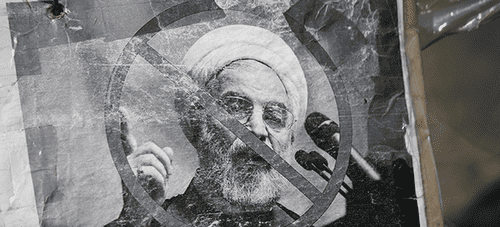In scenes reminiscent of 2011’s Arab Spring uprisings, marchers demanded “bread, jobs and freedom” and an end to corruption.
The customary chants of “death to America” were replaced with the call of “death to the dictator,” as Iranians took to the streets to express unhappiness with the country’s economic shortcomings. At least 21 people died, in the largest public display of disaffection since 2009.

President Hassan Rouhani has so far failed to deliver on a promised economic windfall following the lifting of international sanctions on Iran in January 2016. Rising food prices and double-digit unemployment befell the population instead, despite a surge in oil exports. The situation came to a head late last year when the government proposed an austere budget for 2018. Subsidies on basic goods and services for the poor were subject to proposed cuts, as fuel prices were set to rise by as much as 50%.
Demonstrations, which might initially have been organized by hardline factions of the regime targeting the reformist president, swelled into larger protests calling for the downfall of supreme leader Ayatollah Ali Khamenei. In scenes reminiscent of 2011’s Arab Spring uprisings, marchers demanded “bread, jobs and freedom” and an end to corruption.
Protesters likewise expressed discontent with Iran’s intervention in regional conflicts in Syria and Yemen. If the Iranian regime accedes to their calls by scaling back its interventions in these clashes, this might soothe the tensions in the region that spooked investors last year, according to Jason Tuvey, Middle East economist at Capital Economics.
“Given the focus on economic issues, Rouhani may use the protests to strengthen his hand against the hardliners and accelerate his reform drive,” Tuvey says. He notes the possibility that Tehran could decide to dial down its support for allies in the region, thus improving relations with Saudi Arabia.
For real economic reforms, though, it would be necessary to curb the power and influence of the Revolutionary Guard and the religious establishment, as well as restructure and recapitalize the debt-laden banking system. So far, the clerical establishment has continued to benefit from rising export revenue, but very little of this has trickled down to the general populace.



